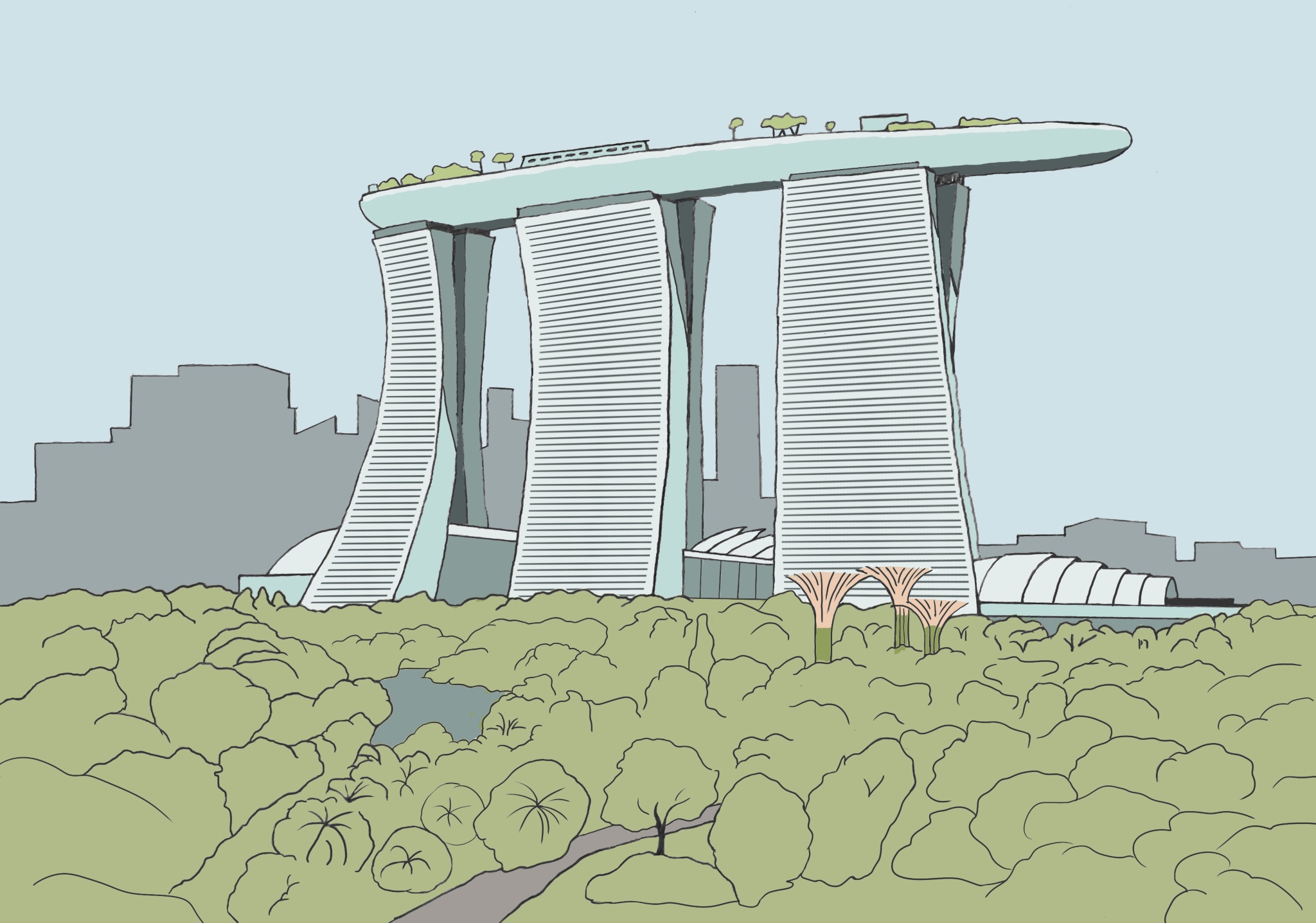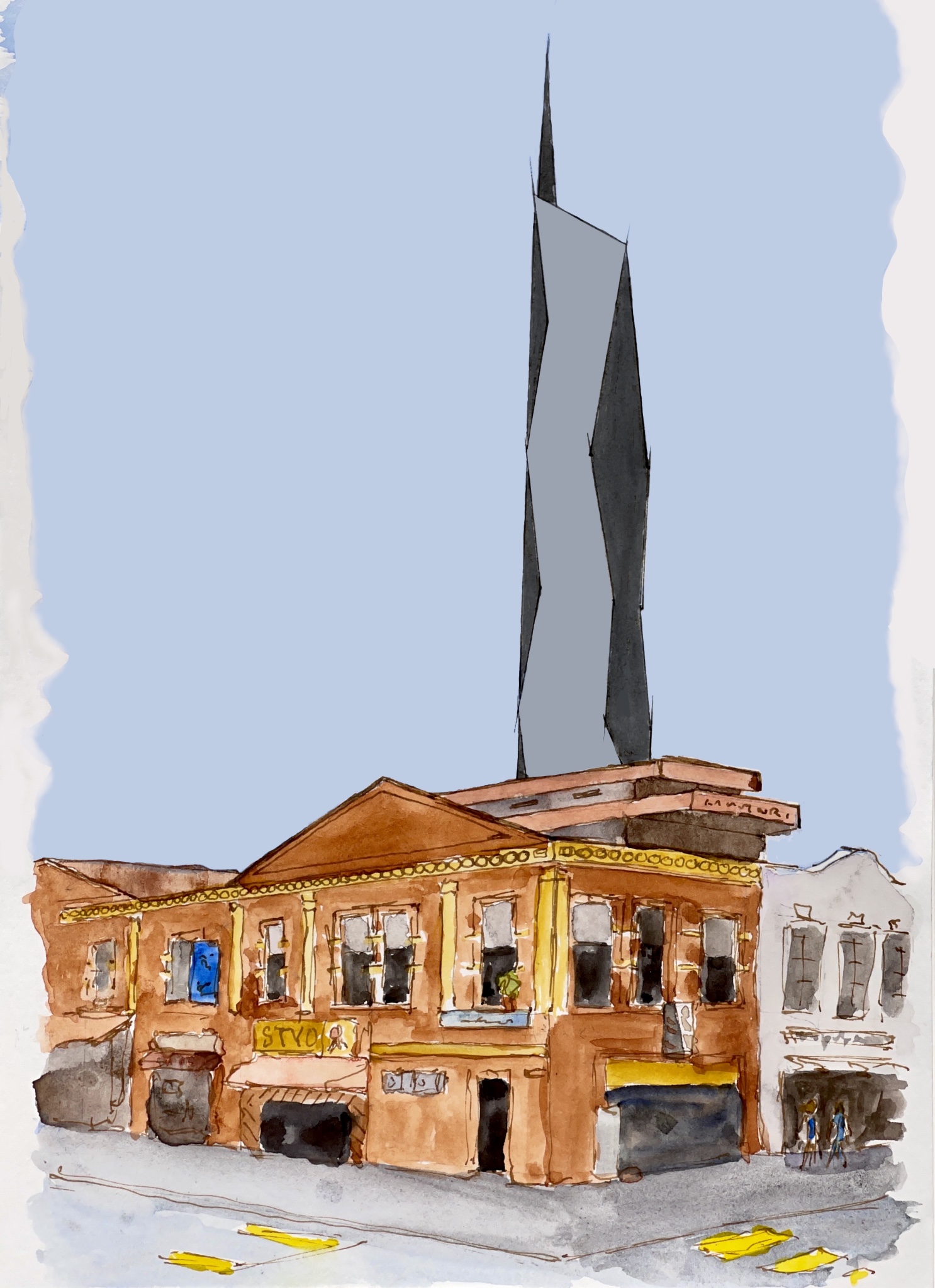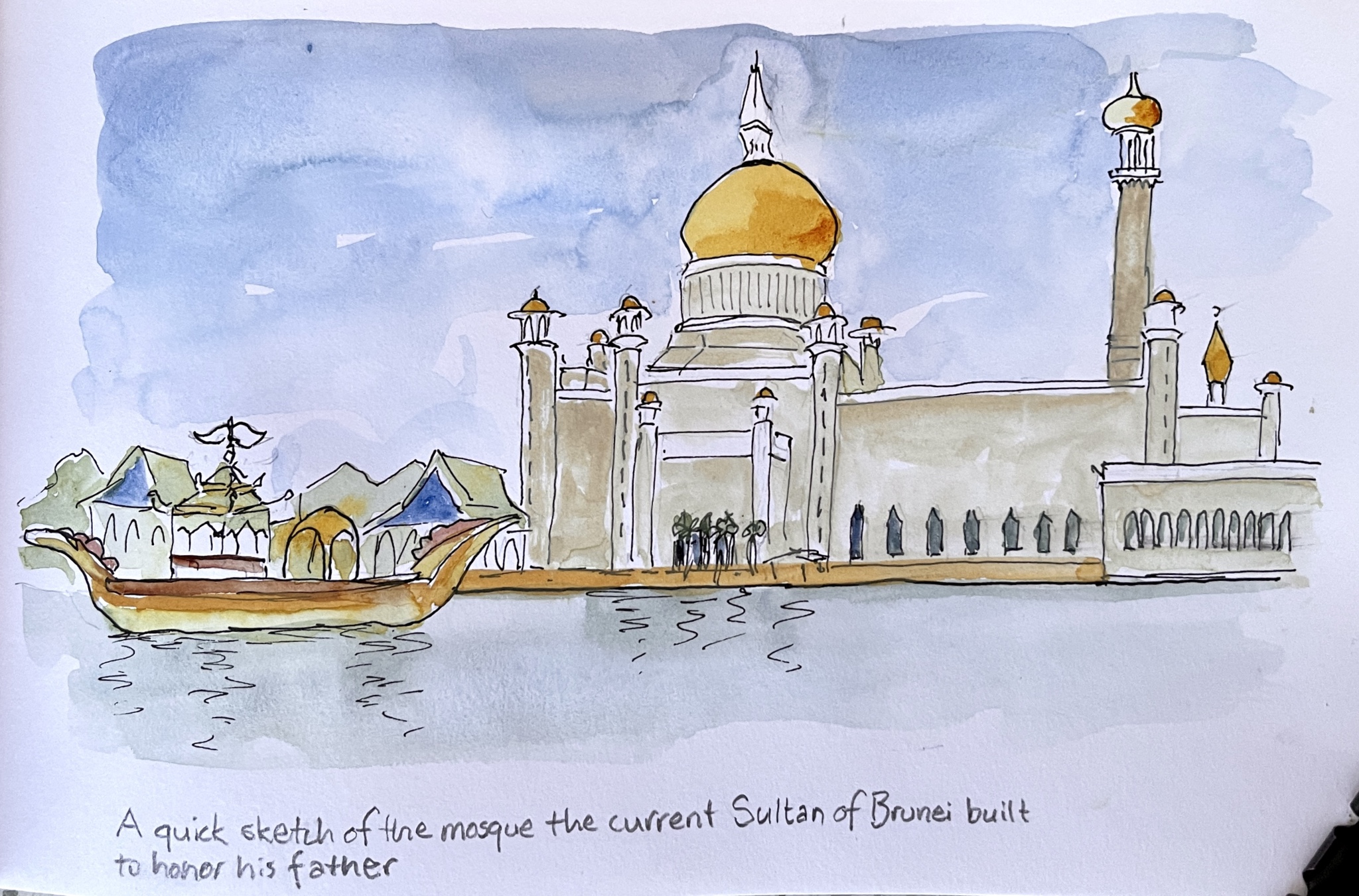DAYS 121-127 Monday, May 15 and Tuesday, May 16
Malaysia, Singapore and Brunei
Starting with Langkawi, Malaysia we traveled between Indonesia, Thailand, and Malaysia, visiting the Malaysian spin-offs of Singapore and Brunei.
This cruise skims the world. It touches on many places, giving us a mere tantalizing glimpse of them. Nowhere is this more evident than in Malaysia, which has a deep and fascinating history. But it’s not my place to go into depth about that. My story is about visiting five remarkably different places that share a common history.
My first encounter with Malaysia (Mary has been here before.) was with Langkawi, which I profiled earlier (Friday, May 12, Day 118). To recap: a backwater trying to make a name for itself as a tourist destination—big aquarium, cable car, tree-top pedestrian bridge.
Penang, that is to say George Town (Tuesday, May 15, Day 121) is a city that presents itself as a champion of tradition, with Victorian-era buildings and a ghetto (the clan jetties) that has turned itself as a kitschy tourist attraction.
Let me jump out of order here and talk about Singapore (May 17, Day 123). I need to inject a little history and culture here. One thing that gives Malaysia a commonality is that it has been Muslim since about 1400. To hold office in Penang, for example, you must be Muslim, and it would be better if you didn’t have Chinese heritage. Singapore, on the other hand, is proudly Chinese. People describe Penang as laid-back, chaotic, inefficient. Not so Singapore. It is enterprising, forward-looking. No chaos here, and they might be able to teach the Swiss a thing or two about enterprise and efficiency. And this is why, in the process of creating the nation of Malaysia in the wake of World War II, its leaders decided to eject the southern tip of the Malay peninsula from their confederacy.
It was just a backward, swampy little area, and dirt poor. But just a few decades later Singapore has become a tiger nation. How is complicated; go look it up. But I’m here to tell you that yes, you have to watch your step. Never mind not spitting your gum out on the sidewalk, you’re not allowed to import it here. Yes, they build mind-blowing new high-rise buildings, amazingly costly tourist attractions, and their land is probably the most expensive real estate in the world, but they dedicate an amazing amount of this land to parks, and are half way to meeting their goal of planting an additional million trees. Singapore’s landmark hotel, with the lap pool on its yacht-shaped roof, is surrounded by acres of trees and shaded walks.
I tried to use the sci-fi style of the artist Mobius to capture this scene.

The capital city of Malaysia is Kuala Lumpur, referred to by just about everyone as “KL.” We toured it on Day 122, Wednesday, May 16. A lot of the residential part of the city is low-lying, wood and bamboo houses, within sight of overpowering high-rises. There is one skyscraper overlooking some of this sort of George-Town looking area that we nicknamed “Darth Vader.”

My impression is Malaysia is trying to mimic the success of Singapore. For example, when we took the “Kuala Lumpur On Your Own” tour, we were given a map with numbers and arrows: First go see the twin towers, then the Observation Tower . . .
Mary was familiar with the city, so we took our own route.
We visited Muara, Brunei, on the island of Borneo on Sunday, May 21 (Day 127). Malaysia is a voluntary confederation of sultanates. One, the sultan of Brunei, decided not to join. My understanding is that he was much more conservative and tradition-minded than the rest.
His decision paid off unexpectedly. Oil was discovered off the coast of Brunei, resulting in the current sultan becoming the richest man in the world. He has doubled down on making Brunei more conservative and is instituting sharia law.
To honor his father the current sultan has built a truly glorious mosque.

